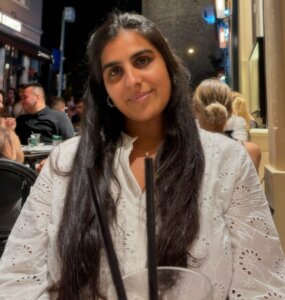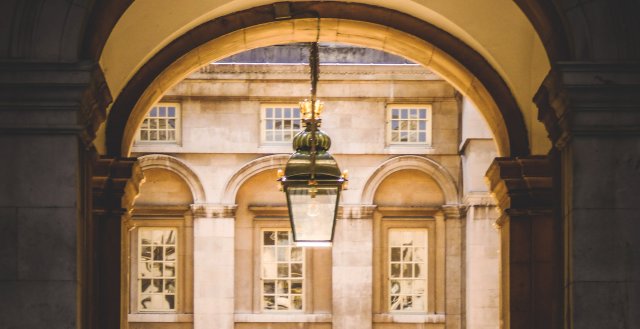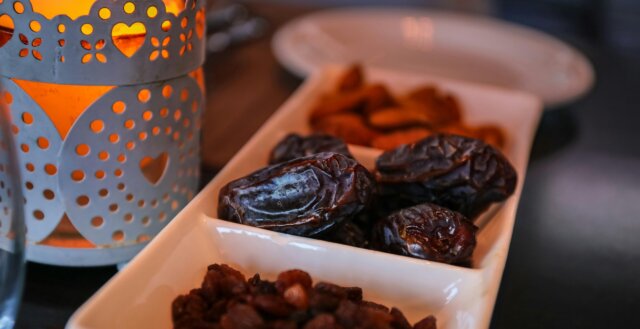- Civil: civil@qsc.law
- Crime: crime@qsc.law
- Employment: employment@qsc.law
- Family: family@qsc.law
- Civil: civil@qsc.law
- Crime: crime@qsc.law
- Employment: employment@qsc.law
- Family: family@qsc.law
Balancing Faith and Family Law - Ramadan at the Bar
Ramadan Mubarak! For those of you who may not know, 1st March 2025 marked the first day of the holy month of Ramadan for Muslims around the world. It is one of the five pillars of Islam and a month in which we fast from sunrise to sunset, (no, not even water) and focus on our relationship with God. Inevitably, food and family form an important part of this month and as a child, I vividly remember the excitement that accompanied peeking out of the window to see the moon outside marking the start of the month, knowing that my mother would be cooking special treats each day and that our whole schedules would change for 30 days so we could make the most of the blessings this month affords to us each year.

Now, 25 years later, Ramadan looks very different for me! As a barrister specialising in family law, I have the absolute privilege of meeting new people every day, listening to and solving problems, spending hours on my feet in court and travelling to courts all over my circuit on any given day – a job I thoroughly enjoy and feel incredibly grateful for, but one that can be challenging to balance with the holy month of Ramadan. As explored below though those can provide opportunities for practising the personal development through faith that is a focus of this special time.
I wake each morning around 3:45 AM for my morning meal, variously known as suhoor or sehri in different parts of the world, and force myself to eat something and hydrate myself before praying and going back to bed for the precious few hours I have before I wake up to travel to Court, whether that’s Bristol, Gloucester, Exeter or beyond! My court day commences with, meeting my client, establishing what needs to be achieved and ensuring that I take my time to listen as well as talk. Being mindful of my client is part of my job but being mindful of everyone is part of my faith and something I should be focusing on especially in this month. At the start of the month I like to sit down and think through some goals, ways I can improve myself and my faith by the time Eid rolls around – this year I’ve decided to focus on talking less and listening more, not being so quick to judge and trying to be as patient as possible, three things that might resonate with a lot of fellow barristers!
By mid-afternoon I begin to feel my energy deplete and my mouth goes dry from my advocacy in Court. The warm and sometimes off-putting jugs of water in court rooms would usually seem like an oasis at this point, but unfortunately in this month, I can’t drink from them! I tend not to feel the hunger during the day and don’t mind if anyone eats in front of me, but I can become irritable both from dehydration and lack of sleep which builds up as the month goes on and I find it harder to stick to the challenging goals I set for myself. Acquiring the resilience and strength to push through difficult times during Ramadan reminds us of those who are struggling around the world with a lack of food and water, a lack of comfort and peace and keeps us mindful of the steps we need to take to understand and help as best we can. Discipline and social responsibility are crucial lessons emphasised during this month which we hope will stick with us throughout the year.

After finalising orders, attendance notes and admin, it’s time to prepare iftar as spectacularly as I can! The focus during this month really shouldn’t be on food but rather on prayer and reflection, but one can’t deny that food is a huge part of what makes this month feel so special. After a day of fasting and abstaining, everything seems delicious! My mother prepared traditional snacks and dishes that required extensive preparation even with a full-time job but the demands of a busy court practice mean I cannot often spare the time for that – I still have to crack open my laptop to go through papers for tomorrow’s hearing and draft a position statement. When preparing food though, I try to incorporate memories from my childhood like samosas and fun desserts but what’s important is that we’re fed and have the time to pray our evening prayer and Taraweeh, the special set of lengthy prayers reserved for Ramadan only after we finish our evening meal which a lot of Muslims prefer to pray at their local mosque each night. We have medjool dates and milk on hand to break the fast in the traditional way and my grandmother’s prayer beads go back on the mantelpiece while my husband helps with the clean up! Preparation then begins for the next morning’s suhoor meal at 3:45 AM the next day.
While this seems like a hectic schedule and often feels like it, there is so much to be grateful for and I try to make space in the day for reflection, prayer and connection with my faith. What makes all of this possible is the amount of support and understanding I get from my chambers. Well before it starts, my already-brilliant clerks are alive to the fact that Ramadan is on the horizon and mindful not to pack too much into my diary. I find I can’t deal with full-day hearings because the dehydration gets worse the more I talk. This is something I’m working on for the future but for now, a half day is the most I can do. A note in my diary books me out for Eid each year and reminds everyone that I can’t go further than a one hour radius from Bristol during Ramadan not only because it’s exhausting but because travelling further than 50 miles one way from your home means you are exempt from fasting for that day as it would be burdensome on you to do so. Pregnant women, breastfeeding women, children, the elderly and the sick are also exempt from fasting for that very reason. However, if I miss a fast for that reason, I need to make it up later in the year.
There’s an open line of communication between myself and my clerks and I am constantly checked in with about whether a certain hearing or court would be doable for me during Ramadan and whether there’s anything else I need. I took two days as remote hearings only in my diary to enable me to travel across the country to spend some quality time with my family during Ramadan, to relive the nostalgia of childhood iftars again and pray together as a family. Chambers enables me to balance work and faith in a way that encourages me to get the best out of both. I never feel like I have to compromise on either and in fact, my clerks even factor in considerations I’ve not thought of to ensure I’m able to practice at my best for my clients which is why I do this job.
I never want to jeopardise my ability to connect with and fight for my clients. When I head to court on a care matter, the Guardian and solicitors ask me about Ramadan with humour and sincerity which makes me feel welcome – I never pass up the opportunity to engage and educate in a positive way! Not everyone receives this kind of support from chambers and some struggle more than others with the challenges of Ramadan at the Bar. I see Muslim barristers breaking their fasts in Court with a date from their bag before heading back into their hearings, working on week-long trials and taking time to ensure their children learn the significance of Ramadan by taking them to the mosque, getting the house ready for Eid and participating in activities with them. We simply can’t do any of this without the right kind of support network.
Those who aren’t observing this month can do so much to help their Muslim colleagues in the legal community each year including engaging positively and respectfully in an open dialogue with us about Ramadan, affording us extra time and consideration to complete our work if requested and being mindful of the demands on our diaries. It’s important to note that every Muslim experiences Ramadan differently and may require different considerations. It’s up to Muslim barristers, their chambers and instructing solicitors to work together around that. Don’t be afraid to ask us about it – what makes us feel comfortable is when we feel welcome, celebrated and included rather than different, awkward and patronised. We can do more to assist our Muslim clients from ensuring they are able to take regular breaks in Court to understanding that their stamina may not be at its best during this month, for example when giving evidence or explaining situations and appreciating the renewed emphasis and sensitivity around faith, sanctity and family time. As a family barrister, I understand that a lot of my Muslim clients want to spend time with their children during Ramadan and Eid – it’s a special time and should be treated as such for the purposes of child contact.
Having had poor experiences in the past with support around this time of the year, I know how important it is to practice in a supportive, inclusive and diverse environment with people who care about your comfort, progress and achievement, both professional and personal. As we head into the last week of Ramadan which features an incredibly busy week in my work diary and stressful thoughts of whether the special outfit I’ve ordered for Eid will arrive in time or not, I have the privilege of reflecting on the month and on how lucky I am to be part of a workplace that values tolerance, respect and the contribution everyone makes. Have a wonderful and blessed Ramadan!









